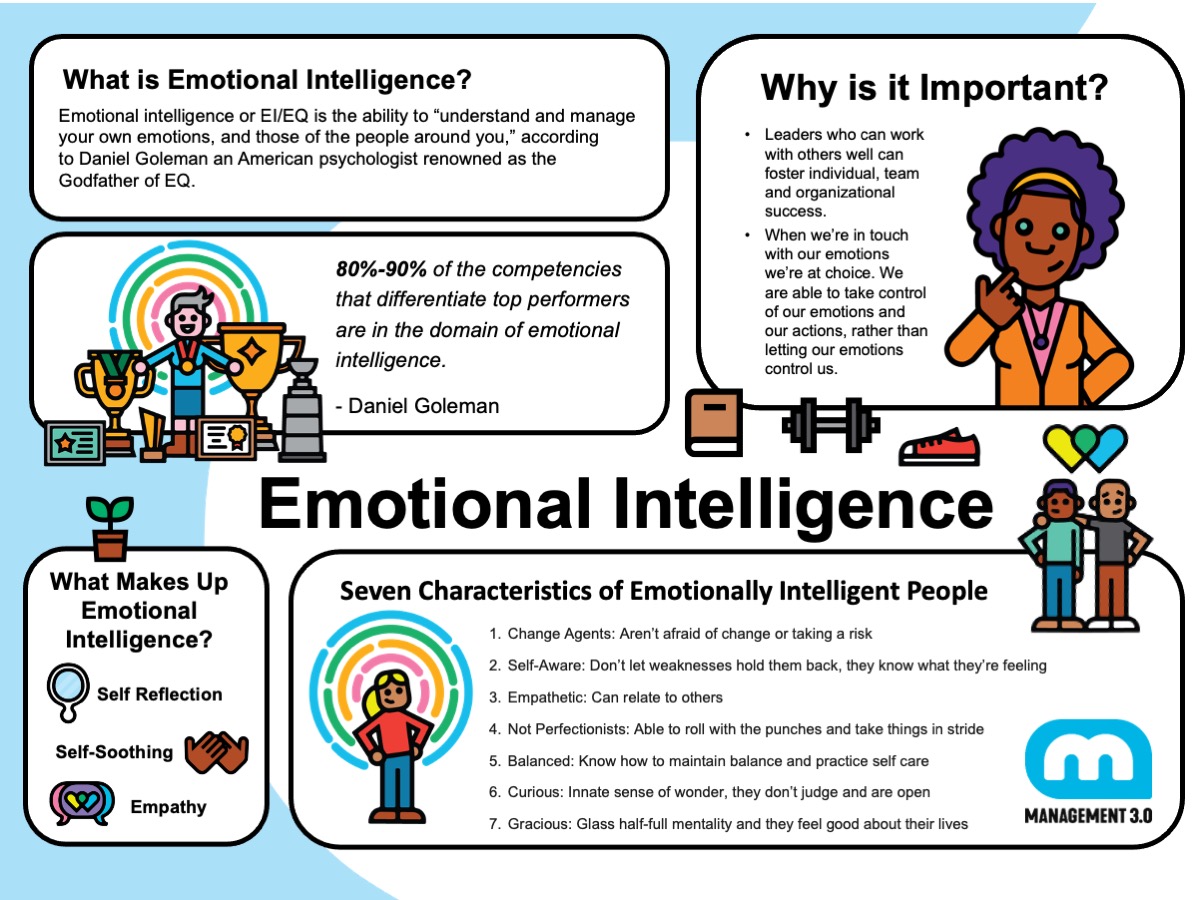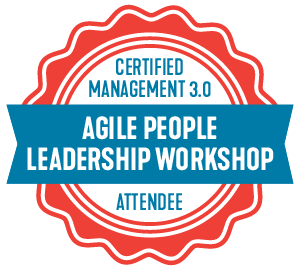How can we connect with others? How well can we articulate what we’re feeling? How in control are we of our emotions? And what would it look like if we were able to accurately understand what people around us were thinking, feeling and wanting? In this module we look into Emotional Intelligence and how understanding our own emotions can make us more effective and successful managers and leaders.
What is Emotional Intelligence?
Emotional intelligence or EI/EQ is the ability to “understand and manage your own emotions, and those of the people around you,” according to Daniel Goleman an American psychologist renowned as the Godfather of EQ.
Emotional Intelligence is the title given to a group of emotional capacities that make human relationships work effectively.
What will you learn?
- What is the definition of Emotional Intelligence.
- Why is Emotional Intelligence important and how can it help you personally.
- The three components that make up Emotional Intelligence.
- The seven characteristics of Emotional Intelligent people: Change agents, Self-Aware, Empathetic, Not Perfectionist, Balanced, Curious and Gracious.
- Five steps to develop your Emotional Intelligence: be in touch, increase joy, positive self-regulating strategies, manager self-talk and lean in.
- How to measure Emotional Intelligence in an organization.
Our EQ can enhance as much as we’re willing to put into developing it!
What will we discuss in this module?
- Showing emotions is a sign of weakness in some organizations, why would this be the case?
- Emotional Intelligence is typically a property of a Management 3.0 organization, would you agree or disagree?
- Some people have a work-instance and a personal-instance of themselves. They behave differently at work compared to how they behave at home. How could this be useful or not be useful?

Learn more about EI in the workplace – The Emotional Intelligence module is part of the following workshop:
Good to know: The Emotional Intelligence module belongs to the view How to Develop Competence, just as Learning and Competencies, Better Feedback and Better Meetings.
At the highest levels in leadership positions, emotional competence accounts for virtually the entire advantage.
Daniel Goleman, Working with Emotional Intelligence
Why is Emotional Intelligence important in Leadership?
Leaders who received performance ratings of 4.1 or greater on a 5-point scale were rated significantly higher than other participants in all four of the Emotional Intelligence dimensions of Self-Awareness, Self-Management, Social Awareness, and Social Skills.


